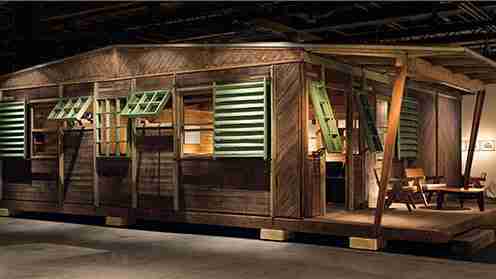A Sleek New Set of Five Limited-Edition Monographs About Jean Prouvé Debuts
Long before there were ModPods and tiny houses, there was Jean Prouvé—the innovative French architect and self-taught engineer, furniture designer and teacher, social justice activist and municipal leader.

Prouvé patented his modular building design, based on an axial portal frame, in 1938, and continued to develop his demountable buildings through the ’60s, seeing them function as homes, schoolhouses, offices, and gas stations. His six-by-six-meter modules, commissioned by the French government after WWII, were shipped to bombed-out villages, where they were quickly assembled on-site. Some buildings were made entirely of wood, some relied on load-bearing sheet metal, but all embodied a crisp modernist aesthetic.
Prouvé’s greatest devotee these days is likely to be French gallerist Patrick Seguin, who has amassed the world’s largest collection of these buildings—19 in total, ranging in size from 172 sq. ft to 2,054 sq. ft. Seguin celebrates Prouvé’s genius in a limited-edition box set of five monographs, each on a specific building. Jean Prouvé Architecture (Galerie Patrick Seguin, $225) will be released in May.
Click here to see photographs from the books.